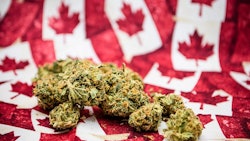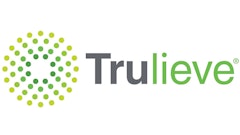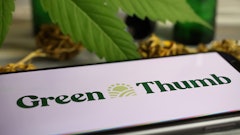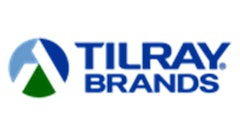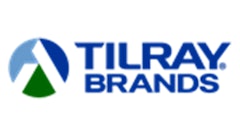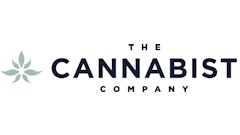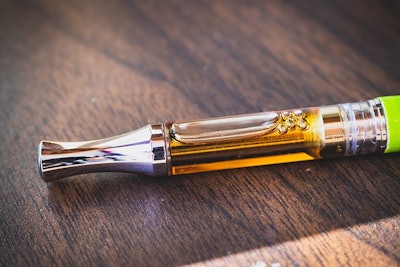
Cannabis companies face unique risks when products are counterfeited—from manufacturers risking their licenses to dispensaries unwittingly purchasing inauthentic products from vendors. To stay out of trouble, companies must remain diligent and operate inside the state-regulated supply chain, according to Kathryn McCall and Kelly McCarthy, partners at Sideman & Bancroft.
For cannabis manufacturers, issues can especially arise if their products are counterfeited and then transported across state lines.
“If a cannabis company’s product is counterfeited and then, let’s say, transported across state lines, … the cannabis company faces federal scrutiny and also could risk losing their license or permits for allowing, ostensibly, their product [to be] transported across state lines,” McCall tells Cannabis Dispensary. “Then they have to go down the road of proving it’s not their product, which sometimes can be difficult to do and by that time, they might have already lost their license or their permit, or it’s been suspended, which can suspend their entire business operations.”
Counterfeit products are generally not tested, she adds, and if an inauthentic product does not have proper warning labels or a consumer gets harmed from using the product, the manufacturer of the real product may risk their license or permit for falling out of compliance.
Counterfeiting can also tarnish a brand, if a dispensary or end consumer receives fake product, determines it to be substandard—or in violation of pesticide and microbial test regulations—and then stops doing business with the authentic brand.
It can be difficult for manufacturers to locate counterfeit products and remedy the situation, McCall adds, especially when they exist outside the regulated industry and states’ seed-to-sale tracking systems.
“It’s tough to find them,” she says. “They’re on the black market. They’re on the gray market. Just like a regular brand would face, it’s just an issue of being diligent, of following up if you find out that your product is in … a retailer where you didn’t place it, or it’s being sold in a different state where you know you didn’t put it. …Most likely it’s going to be a counterfeit good, and it’s trying to track it back [and] remove it from the market.”
Cannabis manufacturers continue to battle counterfeit goods, and some, such as Brass Knuckles, have issued notices to consumers that describe how to ensure a product is real, as well as how to spot fake products that bear their brand name. According to Brass Knuckles, misspellings in strain names, as well as the lack of child-proof packaging and state-compliant labeling, indicate that a product is not authentic.
On the retail side of the industry, dispensaries must purchase products from within the state-regulated supply chain and take steps to ensure they are purchasing authentic goods.
“[Retailers should be] aware of what a legitimate supply chain is for the product that they’re purchasing,” McCarthy says. “Oftentimes, we find retailers selling items that they got from an alternate source for maybe a different price. The alternate source says, ‘Oh, these are authentic. We got them at a discount. We’re able to resell them to you at a lower rate.’ Or, ‘You buy such volume, we can sell at a lower rate.’”
Dispensary owners should know where authentic products are actually manufactured and the set distribution chain that a brand owner utilizes to get their products out to market, she adds. “Staying as much as possible inside of that authorized distribution chain is the best way to ensure that you’re not buying counterfeit. If you know who the official reseller or distributor of a particular product is, then only going through that reseller is the best way to ensure that the product you’re buying is authentic.”
If another seller surfaces and says they have a particular product available, retailers should contact the brand owner and ask if the source is an authorized reseller and if the product is authentic.
And if a dispensary unwittingly ends up with counterfeit products and resells them, it is a strict liability issue, McCarthy says. “You don’t have to be aware that you’re purchasing counterfeit to be found liable for selling counterfeit.”
If a dispensary finds out they have purchased counterfeit goods after the transaction is over—from a customer or a report from the brand—then the products should be immediately pulled from the shelves, McCarthy says. “Oftentimes, there are health and safety issues that are coming from counterfeit products. You don’t know how they’re made, who made them, where they were made, what they were made with. So, you’re not sure if a certain item is safe to sell. That’s just from a safety perspective, and to reduce your immediate liability.”
Next, the retailer should reach out to the brand owner and let them know that it has received counterfeit products. The manufacturer may want the fake goods to aid them in an investigation with law enforcement. The dispensary may also want to call law enforcement on their end, especially if there have been reports of significant safety concerns surrounding the counterfeit products, such as consumers being injured.
And, of course, retailers should never cut corners and knowingly purchase counterfeit products to get a lower price.
“The cannabis industry is very similar to the pharmaceutical industry or the beauty industry or supplements, vitamins—these are all items that people ingest or put on or in their body, so the stakes are higher for those types of industries,” McCarthy says. “It also has the complicated layer of the regulatory concerns and the changing landscape for legalization across the country. It is something that I think cannabis dispensaries should be paying attention to because there’s a lot of regulatory issues that they need to keep track of and stay in line with, and the last thing you need to do is add in a counterfeit problem to that. Why take more risks when you’re already in a high-risk industry?"










